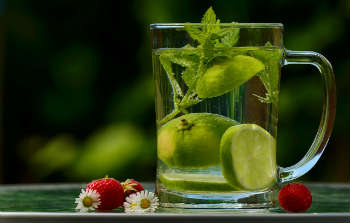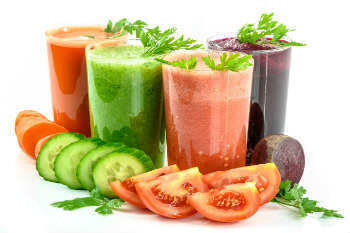Are Detox Therapies Beneficial?
From maple syrup and cayenne pepper master cleanses to ancient eastern practices, detox therapy seems to be all the rage these days. These therapies claim that they will eliminate toxins from the body and help you to feel more energized and focused. But does detoxing actually work? While anecdotal evidence on detoxing abounds, most doctors will agree that there is no scientific basis in this very popular form of alternative medicine.
What Does Detox Actually Mean?
Detox can mean two different things. The original use of the term was for helping those with drug addiction wean off substances in order to break their dependence. Today, the term is widely used to describe the process of removing poisonous toxins from the body present due to overindulgence and an unhealthy lifestyle from junk food, alcohol, and smoking cigarettes, or from a buildup of environmental toxins in our system. The thought is that these toxins can be stored in our fat, tissue and bone and can wreak havoc in our bodies.
Different Types Of Detoxes
The most popular form of detox is in the form of diets. Detox diets vary but usually include a specific and often strict diet followed by or combined with a period of fasting. Raw vegetables, fruits and juices, water, maple syrup, honey, garlic, cilantro and cayenne pepper are some of the things included in these diets. A range of other detox treatments are used, often in conjunction with these diets:
- Hydrotherapy in the form of detox baths where Epsom salts are generally mixed with essential oils, and the use of saunas to sweat out toxins and chemicals.
- Supplements; for example, silica and chlorella for the removal of heavy metals and chemicals.
- Chelation therapy which involves injecting a chelating agent such as EDTA, a synthetic amino acid, for the removal of heavy metals.
- Skin bruising or cupping which is the process of putting cups, usually heated, onto the skin to create suction in order to stimulate blood circulation and remove toxins from the system.
A Lack of Evidence In This Method
While it’s clear that in modern society we are exposed to a variety of toxins both inside the home and out, what’s  not clear is whether or not these detox processes actually work. While an abundance of anecdotal evidence about the effectiveness of detoxing exists, to date there’s no scientific evidence that it does anything. No randomized controlled trials on this form of alternative medicine exist. In fact, it’s possible that the very thing that seeks to cure us can actually make us sicker.
not clear is whether or not these detox processes actually work. While an abundance of anecdotal evidence about the effectiveness of detoxing exists, to date there’s no scientific evidence that it does anything. No randomized controlled trials on this form of alternative medicine exist. In fact, it’s possible that the very thing that seeks to cure us can actually make us sicker.
Detox diets run the risk of causing malnutrition. Fasting or diets that are low in protein can cause fatigue. Also, fasting for long periods of time can cause vitamin and mineral deficiencies. Improper supplementation can lead to hepatoxicity or liver damage. Chelation can cause electrolyte depletion. Enemas or colonic irrigation can lead to bloating, cramping, nausea and vomiting and can also cause dehydration or, more seriously, perforation of the colon if not done properly.
A liver that doesn’t function properly can certainly present all kinds of health problems. One could argue, however, that a malfunctioning liver should be addressed by professional medical treatment and not a detox solution that as yet has no basis in science. In healthy individuals, the liver is generally quite good at detoxifying the body on its own. In fact, a healthy body rids itself of toxins through kidneys, skin, and lungs as well as the liver. All of these systems would have to be malfunctioning for a life threatening build up of toxins in the body, in which case serious medical intervention would be required.
The long and short of it is that there’s currently no scientific evidence showing that these kinds of detox treatments work. While a diet focusing on fruits and veggies can certainly be beneficial to overall health and supplementation with vitamins and minerals can provide long-term benefits, strict detox therapy can be dangerous particularly for people with existing medical conditions. Short term detoxing might help improve our mood and make us feel better initially, but a diet rich in vitamins and minerals, regular exercise, not smoking and limiting alcohol intake is a better solution in the long run.






